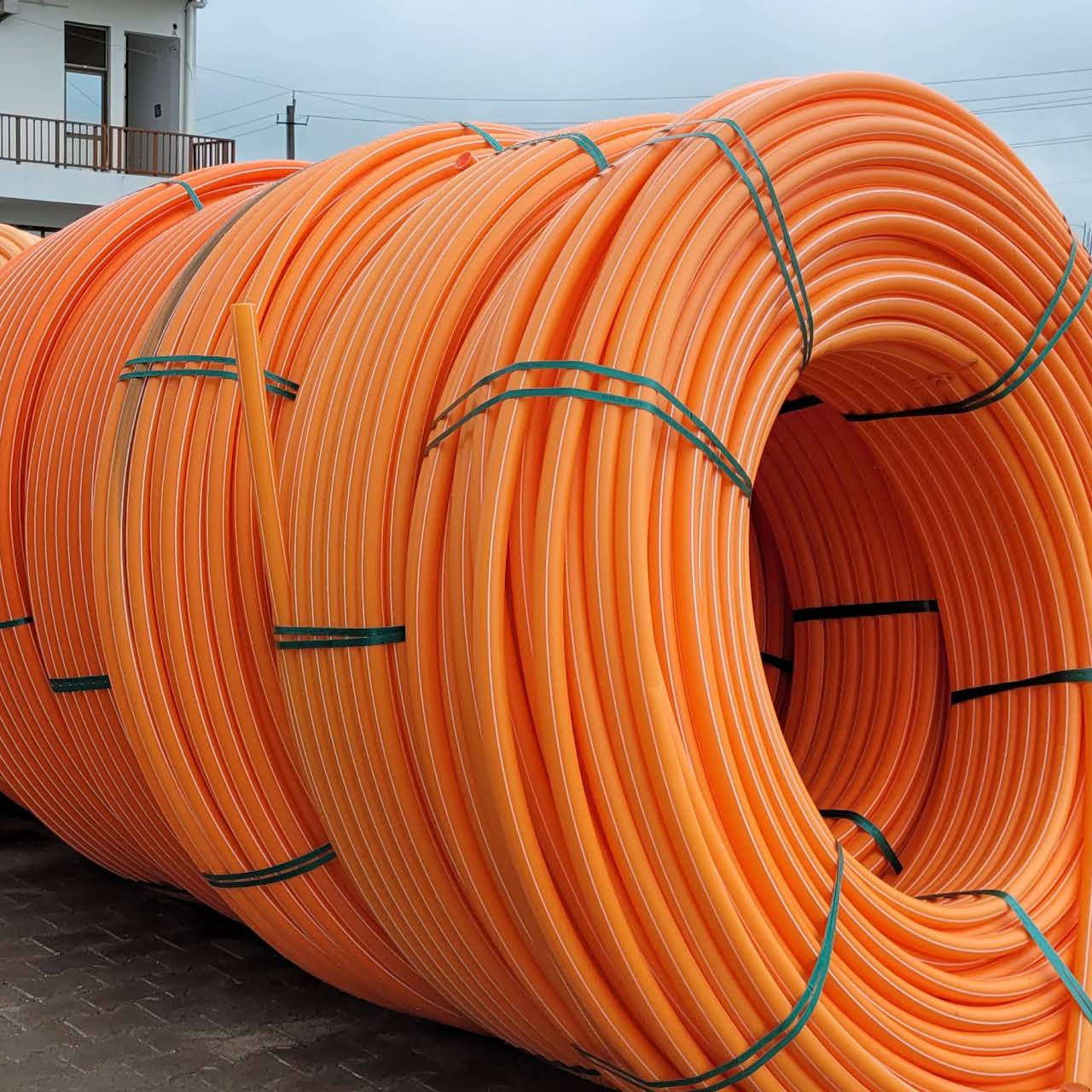Understanding the Key Perks of HDPE Pipe for Water and Wastewater Administration
Using HDPE pipe in water and wastewater monitoring offers many advantages that warrant consideration. Its remarkable toughness and lengthy lifespan make it a recommended option for numerous tasks. Furthermore, the material's resistance to corrosion and chemical damages improves its dependability in various environments. The advantages prolong beyond simply longevity and resistance. American Plastics HDPE Pipe Manufacturing. Exploring its cost-effectiveness and environmental effect exposes a lot more engaging reasons for its prevalent adoption in modern facilities
Outstanding Durability and Durability

HDPE pipe stands apart for its outstanding longevity and long life, making it a favored option in water monitoring systems. Created from high-density polyethylene, these pipes can withstand substantial pressure and stress, making sure trusted efficiency over time. Their robust nature allows them to withstand severe ecological conditions, including temperature fluctuations and dirt movements, which can create other products to fail.
The life-span of HDPE pipes commonly exceeds 50 years, giving a cost-efficient option for towns and sectors alike. Additionally, the material's light-weight residential properties simplify installation, minimizing labor expenses and timeframes. This toughness minimizes the need for regular fixings or replacements, better boosting its economic allure.
In water administration applications, the reliability of HDPE pipelines means less disruptions and boosted service connection, making them essential to lasting facilities growth. The combination of durability and longevity strengthens HDPE's role as a foundation in effective water management remedies.

Resistance to Deterioration and Chemical Damage
While numerous materials catch deterioration and chemical damages in time, HDPE pipelines display amazing resistance, making them perfect for numerous water administration applications. This durability originates from the molecular framework of high-density polyethylene, which is inherently non-reactive and does not wear away like metals or break down from exposure to harsh chemicals. Because of this, HDPE is extremely efficient in environments with hostile compounds, such as wastewater systems that may include acids, bases, and natural solvents.
Furthermore, HDPE pipes can withstand ecological factors such as dirt level of acidity and saline conditions, additionally enhancing their suitability for diverse applications (American Plastics HDPE Pipe for Oilfield). Their ability to maintain architectural honesty in time lowers the danger of leakages and failures, which is essential in making sure the safety and reliability of water circulation and wastewater monitoring systems. The resistance to deterioration and chemical damages significantly contributes to the overall efficiency and long life of HDPE piping solutions.
Cost-Effectiveness and Economic Advantages
When considering the financial ramifications of water administration systems, the cost-effectiveness of HDPE pipes becomes evident. These pipelines supply reduced setup and maintenance costs compared to traditional products like steel or concrete. Their light-weight nature simplifies transportation and installment, leading to decreased labor expenses. Additionally, HDPE pipes exhibit a long lifespan, usually going beyond half a century, which equates to fewer replacements and long-lasting savings.
Additionally, the resistance of HDPE to corrosion and chemical damages decreases the requirement for expensive repair work and replacements. The pipelines likewise support efficient water circulation, minimizing energy expenses related to pumping systems. By reducing leakages and water loss, HDPE pipelines contribute to substantial financial benefits for districts and sectors alike. On the whole, the preliminary investment in HDPE piping can generate substantial economic returns over the life expectancy of the water administration system, making it a prudent selection for lasting infrastructure growth.
Environmental Sustainability and Lowered Effect

Versatility and Adaptability in Setup
As a result of their special residential properties, HDPE pipes offer remarkable convenience and flexibility in installment, making them appropriate for a wide array of applications. Their lightweight nature permits much easier handling and transport, lowering labor prices and setup time. HDPE pipelines can be bent and shaped to fit numerous surfaces and task demands, which is specifically valuable in challenging settings.
Additionally, their resistance to rust and chemical damages allows for installation in diverse settings without the requirement for specialized protective coatings. The ability to fuse joints creates a constant, leak-free system, improving the general stability and dependability of the installment. HDPE's adaptability additionally fits ground activity, lowering the risk of damage in areas prone to shifting dirt. Overall, these qualities make HDPE pipelines not only flexible however likewise a favored choice for water and wastewater management systems.
Frequently Asked Questions
Just How Does HDPE Pipeline Contrast to PVC in Water Administration Applications?
HDPE pipe offers exceptional flexibility, resistance to corrosion, and toughness contrasted to PVC. Its lighter weight assists in much easier installment, while its lengthy life expectancy minimizes replacement costs, making HDPE a preferred selection in water monitoring applications.
What Is the Life Expectancy of HDPE Pipes Under Typical Conditions?
Under common problems, HDPE pipes can have a life-span ranging from 50 to 100 years. Their resilience and resistance sewage pipe repair to deterioration contribute to their lasting efficiency in different applications, making them a trustworthy option for facilities.
Are HDPE Water Lines Recyclable After Their Solution Life?
Yes, HDPE pipelines are recyclable after their life span. Pipe Manufacturing Midland TX. They can be processed and repurposed right into brand-new products, substantially lowering environmental impact and promoting sustainability within the market, making them an environmentally friendly selection for piping remedies
What Is the Setup Refine for HDPE Pipes?
The setup process for HDPE pipelines includes site preparation, trenching, pipe combination or mechanical joining, backfilling, and stress testing. Appropriate strategies ensure a sturdy and efficient system for transporting water and wastewater efficiently.
Can HDPE Piping Be Used for Both Drinkable and Non-Potable Water Equipments?
Yes, HDPE pipelines can be made use of for both potable and non-potable water supply. Their adaptability, resilience, get redirected here and resistance to rust make them appropriate for numerous applications, making certain safe and effective transportation of water in different contexts.